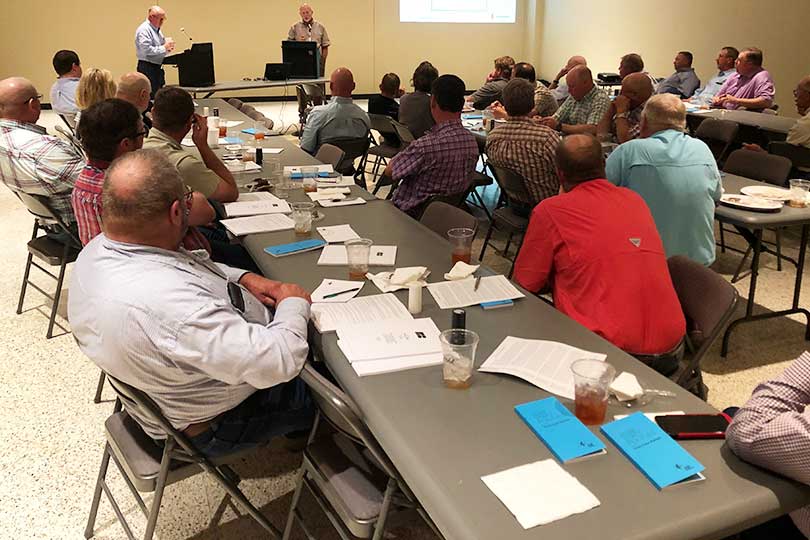By Julie Tomascik
Editor
The future of Texas agriculture, the rights of landowners and labeling issues were among the topics discussed at recent Texas Farm Bureau (TFB) Policy Development meetings across the state as members considered and discussed policy updates for the upcoming year.
“Policy Development meetings are instrumental in mapping out our organization for the next year,” Brant Wilbourn, TFB associate director of Commodity and Regulatory Activities, said. “Each TFB district has different issues that are important to their area, but they’re also important to agriculture and rural life in our state.”
About 800 county leaders representing more than 150 counties were in attendance.
Property values and taxes have a major impact on Texas farmers and ranchers. That’s why TFB members surfaced issues regarding appraisal values and rollback taxes. Also of concern is when a property spans multiple counties and has vastly different property taxes.
“The same piece of property should not be appraised and taxed at a different value just because it crossed the county line,” Wilbourn said.
Meat labels, members noted, are not clearly defined. The “Product of USA” stamp is printed on retail meat products that have passed food safety inspection by the U.S. Department of Agriculture’s Food Safety and Inspection Service (FSIS). Those products, however, could include meat imported to the U.S. because it must pass inspection by FSIS.
“Confusing labels fuel false rhetoric and fear-based marketing, which can lead to consumer mistrust in agricultural product safety and quality,” Wilbourn said. “Clearly-worded meat labels will help farmers, ranchers and consumers better understand the verification process for the product.”
New state and regional flood planning processes and a flood financing program were established during the 86th Texas Legislature. The flood planning program will result in regional flood plans in 2023 and the first state flood plan in 2024.
Members expressed the need to ensure TFB policy accurately reflects the needs of rural Texas as the flood plans, processes and financing are developed.
Wilbourn noted discussion on sales tax exemptions for safety equipment also surfaced.
“Currently, safety equipment is not an item listed on the sales tax exemption list,” he said. “Farm Bureau members feel that if the safety equipment is used exclusively on a farm or ranch in the course of producing ag products, the equipment should be exempt from sales taxes.”
Eminent domain reform was also discussed at several of the meetings.
“Although it was disappointing that we didn’t achieve our goal with eminent domain reform last session, Texas farmers, ranchers and landowners aren’t giving up,” Wilbourn said. “Strengthening private property rights and fairness in eminent domain proceedings will continue to be a focus for TFB members.”
During the eminent domain reform discussion, members highlighted the need for pipeline surface remediation requirements. Currently, the only way landowners can remedy improper repair or cleanup is through litigation. A policy idea that was surfaced at the meetings suggests supporting the requirement for pipeline companies to carry a performance bond to restore the land to its prior condition.
Members at the meetings also discussed potential TFB policy regarding agricultural electric services and extending the timeline to qualify as a beginning farmer and rancher in order to participate in state and national funding programs.
County Farm Bureaus must submit TFB policy resolutions to the state office by Friday, Oct. 25.
TFB policy proposals approved by county Farm Bureaus will be considered by the TFB Resolutions Committee in early November.
The committee’s recommendations will be forwarded to the TFB Annual Meeting Dec. 7-9 in San Antonio for consideration by the voting delegates.

